Sheet metal is the bedrock of metalworking as it concerns vehicles. Regardless of the type of car you are working with and the level of restoration you are planning, this constitutes an essential part of any automotive project. A significant part of sheet metal work is performed without welding or other similar processes. Instead, you can simply use shears, a manual bead-rolling wheel, and a few other basic tools to complete your car restoration sheet metal project.
Sheet Metals That Are Generally Used
Sheet metal is typically sold in three different forms: mild steel, aluminum, and stainless steel. The first two are the most widely used for car restorations. Here is a close look at the differences between these three types of sheet metals and the benefits of each one.
Mild Steel
Mild steel is an excellent material to use for parts such as fenders, firewalls, and door skins. This type of sheet metal is easy to weld and unlikely to rip or tear. If you are looking for light sheet metal, mild steel is the ideal choice. Mild steel is also extremely malleable: it can be bent and twisted into many different shapes. Finally, mild steel is very affordable. However, you may need to treat it in order to stop it from corroding. (Note: Do not use heat to treat mild steel, as this may impact its carbon content.)
Aluminum
Aluminum is ideal for dashboards due to the fact that it is light and relatively easy to handle. It also does not rust as easily as steel and can be painted and anodized with color. Aluminum is also stronger than steel and is 100% recyclable. Although it is not as affordable as mild steel, it is less expensive than stainless steel or brass. One of the main drawbacks of aluminum is that it tears easily. Therefore, you should use a tool such as a spool gun MIG or a TIG to weld it.
You can also use aluminum to make a bulkhead. It is recommended that you use cardboard to create a template for it. If you do not have a bead roller, you may take your bulkhead to a custom auto body shop so that a professional can assist you with this portion of your project.
Stainless Steel
Stainless steel is an alloy of iron, nickel, chromium, and other metals. It is extremely resistant to oxidation and is thus very durable. Stainless steel’s high melting point makes it ideal for building and adding car parts such as brackets, panels, and tubing, as well as for interior trim pieces. The two primary downsides of stainless steel are that it is expensive and that it shows dirt very easily.
You can generally sand down any stainless steel part on a vehicle except for large dents. The first step toward polishing stainless steel trim involves selecting two materials that are firm but not hard in order to avoid stretching the metal. Place each trim piece on a smooth surface and hit it with a hammer. Aside from sandpaper, you can utilize wood to take out the high points.
Best Options For Your Project
If you are unsure about the most appropriate sheet metal for your project, reach out to a custom auto body shop. This type of business’s professionals can provide you with recommendations for which material is the most suitable option for your project based on your budget and the type of vehicle you are working on. For example, if you are seeking to restore a muscle car, stainless steel may be your best option because the metal parts of these types of vehicles often rust more quickly.
Contact A Car Restoration Sheet Metal Professional
Reach out to the professionals at Robs Customs & Restorations in Manassas, Virginia for more information on the different types of sheet metal to use for a car restoration. Regardless of the type of project you are planning, we are dedicated to helping you achieve your goals while staying within your budget.
At Robs, we have experience working with several different types of automobiles, including classic, vintage, antique, and muscle cars. Our restoration process always begins with a frame alignment, as this is essential to allowing any vehicle to circulate openly on the roads. We will then move on to restore your car’s interior, including the seats, dashboard, and center console if necessary. We also provide rust repair and custom paint jobs. We can perform four different types of engine swaps: LS, Fuel-injected, Coyote, and Hemi.
Call Robs Customs & Restorations today at (703) 552-5001 or contact us online to receive a free estimate on your restoration or to learn more about our services.
